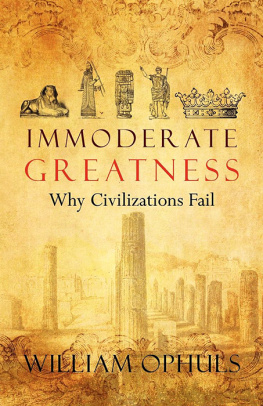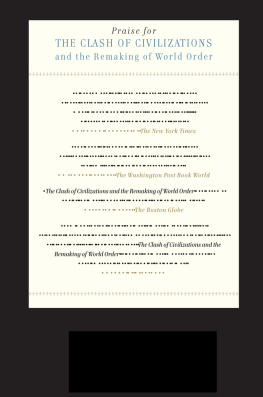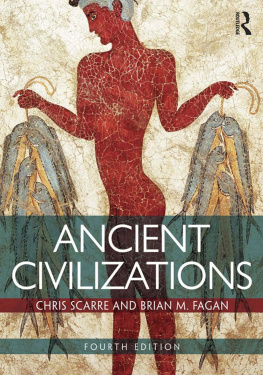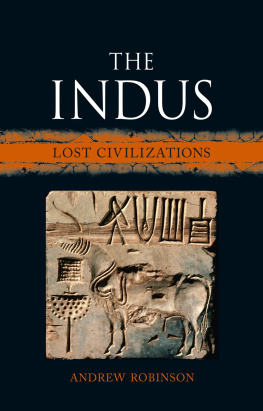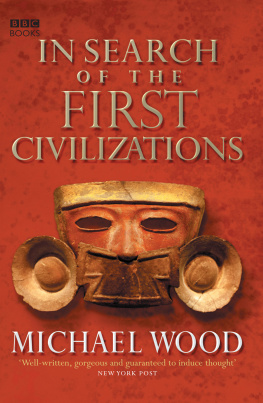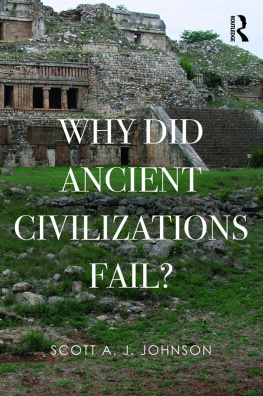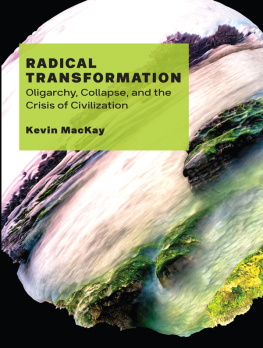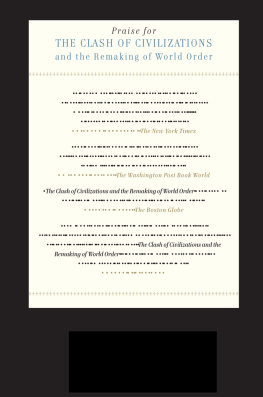All rights reserved.
The decline of Rome was the nat u ral and i n evitable effect of i m moderate greatness. Prosperity ripened the principle of decay; the causes of destruction multiplied with the extent of conquest; and as soon as time or accident had removed the artificial supports, the stupendous fabric yielded to the pre s sure of its own weight.
Preface
This book weaves together many strands of thought to explain why civilizations decline and fall. None of the strands in this short, synoptic overview is orig i nal. However, my synthesis of biophysical, moral, and practical factors is, I believe, original and points toward a concl u sion that most will find both novel and unpalatable: civilization is e f fectively har d wired for self-destruction.
To this end, I abstract, from a long and complex historical record, the six major factors that propel civilizations toward breakdown, using eclectic e x amples drawn from different eras and different s o cieties. My aim is to capture the essence of each fa c tor, not to account for the history of this or that civilization or to explain how and why the factor has become especially pressing today. Similarly, I do not deal with the exceptions that prove the rulefor i n stance, the geographical a d vantage enjoyed by the Byzantine and Ottoman empiresbecause I am co n cerned with what is common to all civilizations. Nor do I draw out at length the role and significance of these factors in the conte m porary world, relying i n stead on the reader to reach his or her own concl u sions. To describe and analyze the plight of modern civilization in depth would require a very different book (and there would be li t tle point, because other excellent works on this topic are available ).
Readers of the manuscript in draft have co m plained that I provide a diagnosis without a cure. Surely something can be done? But new programs within the old paradigm will simply recreate the old problems in a new guise. Moreover, my analysis su g gests that there is very little that we can do. Most of the trends I identify are inexorable, and complex adaptive systems are ultimately unmanageable. To the extent that we can do something, the required measures are far outside the bounds of what is fe a sible or even thinkable today. Indeed, as I have a r gued in a previous work, a genuine cure would r e quire a revolution in human thought greater than the one that created the modern world.
Such momentous changes do not occur by acts of human will. Cultural solutions, says Wendell Berry, are organisms, not m a chines, and they ca n not be invented deliberately or imposed by pr e scri p tion. On the other hand, an honest and realistic assessment of a problem is the indispensable first step toward its solution. What follows is my best e f fort to provide such an assessment.
Introduction
Immoderate Greatness
Wise men say, and not without reason, that wh o ever wishes to foresee the future must consult the past; for human events ever resemble those of preceding times. This arises from the fact that they are produced by men who ever have been, and ever will be, animated by the same passions, and thus they necessarily have the same results.
Niccol Machiavelli
Modern civilization believes that it commands the historical process with technological power. Allied to capitalist markets that foster co n tinual innovation, this power will allow it to overcome the challenges I identify and thereby escape the common fate of all previous civiliz a tions. No longer bound by the past, or so we think, our future is inf i nitely bright. The late futurist Herman Kahn, for example, claimed that by the year 2200, humans would everywhere be rich, numerous, and in control of the forces of n a ture. Only a confirmed pessimist, trapped in an antiquated worldview and a pitiful ignorance of sc i ences potential, could possibly think otherwise.
I argue to the contrary that industrial civilization will yield to the same passions that have produced the same results in all previous times. There is simply no escape from our all-too-human nature. In the end, mastering the historical process would r e quire human beings to master themselves, something they are very far from achieving. (This is why d e mocracy, considered by some to be an asset in the struggle against the forces that challenge industrial civilization, is in fact a liability. ) Commanding hi s tory would also require them to overcome all of the natural limits that have defeated previous civiliz a tions. As will be shown, this is unlikely. Hence our civilization, too, will decline and fall. In fact, the process of decline is already well a d vanced.
The essential reason is contained in Gibbons terse verdict on the decline and fall of Rome: i m moderate greatness. But what exactly is immoderate greatness, and why does it foretell the downfall of civil i zations?
In essence, immoderate greatness exemplifies what the ancient Greeks would have called hubris: overbearing pride or presumption. Civilization is Homo sapiens s bold attempt to rise above the nat u ral state in which the species lived for almost all of its two hundred thousand years on Earth. Unfort u nately, by its very nature, this effort to become greater encounters four implacable biophysical li m its. It also sets in motion a seemingly inexorable moral and practical progression from original vigor and virtue to terminal lethargy and decadence. In other words, we can dissect hubris into its comp o nent parts and thereby specify the concrete stru c ture of civilized mans ingrained presumption. Ne v ertheless, when we have done so, we shall find that the Greek answer is essentially correct. Those a f flicted by hubris become the agents of their own d e struction. Like a tragic hero, a civiliz a tion comes to a ruinous end due to intrinsic flaws that are the shadow side of its very virtues.
My purpose is not to propose yet another theory of historical cycles but, rather, to isolate the ec o logical, physical, psychological, and practical fa c tors that drive the cyclesthat is, to show that the o b servable rhythms and structures of human history have demonstrable causes. I do not posit an absolute determinism. The factors discussed below interact with geography, culture, and historical ci r cu m stances to create a unique trajectory for each civil i zation. (Thus, for example, the extended survival of both the Byzantine and the O t toman empires reflects the unique geopolitical advantages of an e m pire ce n tered on the Bosporus. ) But these trajectories are all vari a tions on the theme of success followed i n exorably by failure.
Most historians have tended to emphasize the psychological factors as causal. Will and Ariel Durant echo Machiavelli: History repeats itself in the large becauseman is equipped to respond in stereotyped ways to frequently occurring situations and stimuli like hunger, da n ger, and sex. Hence civilization succumbs to moral decay and pract i cal failure. But we shall see that biophysical constraints play an equally important, if not decisive, role in propelling civiliz a tions toward e x haustion and eventual death.

